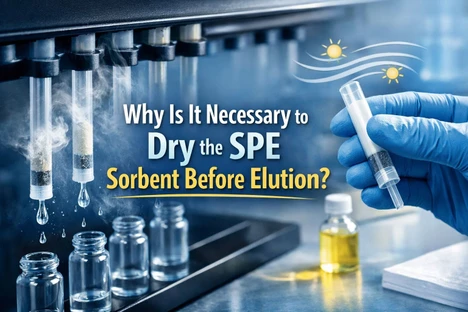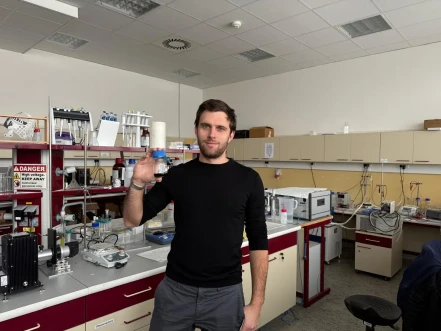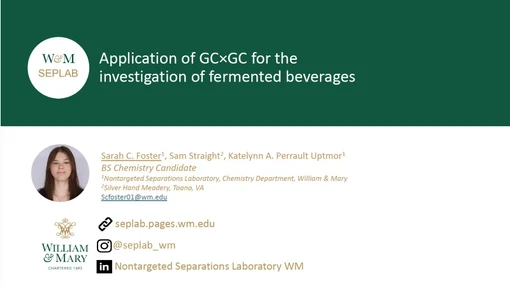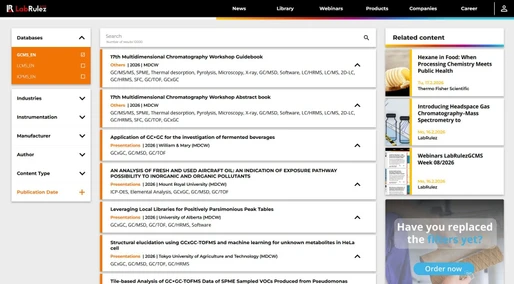Helium Conservation in GCMS and GC Applications
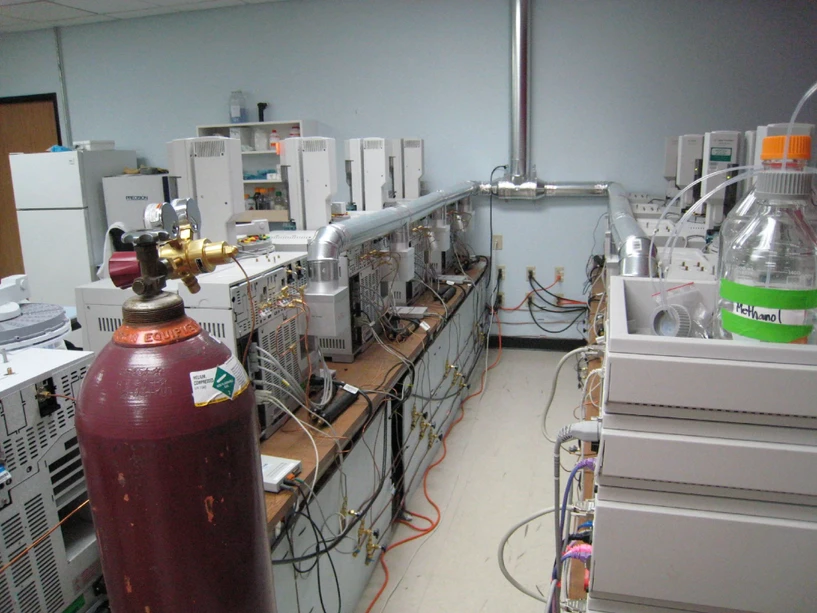
Wikipedia/Hey Paul: Helium Conservation in GCMS and GC Applications
Several manufacturers have taken notice and started to supply products and technical advice to address the problem.
Conserve Helium or Switch to Hydrogen in GCMS and GC Applications?
The most straigtforward approach is to conserve helium by minimizing helium useage in GCMS applications. This avoids having to make changes to current well established analytical methods. A more radical approach is to switch from helium to hydrogen for GCMS. The latter shows promise and is discussed below, but one needs to consider the challenges. The use of hydrogen in pure GC applications is much less of a challenge and is commonly employed.
LabRulez: Dozens documents for Switching from Helium to Hydrogen available in the LabRulezGCMS library
Thermo Fisher Scientific
has a clever product, iConnect Helium Saver, for their Split/Splitless Trace GC systems. It uses helium for the injection and nitrogen for all other aspects of the injection process to conserve helium. They state that it can dramatically increase the lifetime of one cylinder of helium:
3.5 years continuously used 24/7/365 for GC-MS
14 years when you either shut the helium off of divert to nitrogen overnight and on weekends
LabRulez: Dozens documents for Thermo Helium Saver Injector technology available in the LabRulezGCMS library
Agilent Technologies
has created many useful documents and products. They compare the advantages of using Hydrogen for GC separations compared to helium and even discuss the use of nitrogen as a carrier gas. They also discuss a study that dramatically reduced helium useage in their Little Falls Site. For example, a GC-MSD (GC-MS) using their Gas Saver hardware increased the lifetime of a helium cylinder from 109 to 252 days.
Another Agilent presentation describes in detail the use of their 7890 Helium Conservation Module which uses nitrogen during standby. In one application, it extended the use of a cylinder of helium from 2 to 12 months.
LabRulez: Documents for Agilent JetClean technology available in the LabRulezGCMS library
Other Agilent Resources include:
Chromtech
Eco-Saver for All GC Systems
Markes International
Mulitigas Thermal Desorber for GCMS
SWITCH from Helium to Hydrogen for GCMS?
Agilent, LCGC, Thermo, Shimadzu, and Bruker discuss the pros and cons of using hydrogen as a carrier gas instead of helium for GC-MS analyses. Topics discussed include chemical noise, detection limits, changes in analyte EI spectra (reduction), tailing, in-situ source cleaning, self-CI, etc. when hydrogen is substituted for helium and how to minimize or avoid such limitations.
Bruker says their SCION GC-MS with the Helium Free Analyzer option offers good pumping and injector design. They indicate that all 76 components in EPA Method 8270 including nitro and nitroso compounds gave high quality searches against the NIST library using AMDIS deconvolution. Others noted that nitro compounds can yield spectra showing the in-source reduction of nitro compounds.
Agilent Jet-Clean technology actually uses hydrogen in instruments that use helium as a makeup when the instrument is at idle to remove build-up of “dirt” in the source. Thus, using hydrogen as the carrier might also offer similar advantages by minimizing source cleanings.
LabRulez: Dozens documents for Agilent JetClean technology available in the LabRulezGCMS library
Interesting Videos
MRI and NMR useage can also be decreased by new technology. Many years ago our Cryrolect GC-IR had a similar approach.
Party and Weather Balloons account for about 7% of the useage of helium per year. I saw in several places on the internet, but surprised it was such a realtively high number.
Helium Conservation webinars in the LabRulezGCMS database
1. Agilent Technologies: Strategies to Save Helium and best practice for alternative GC carriers
- RECORD | Already taken place Tu, 26.4.2022
Agilent will be presenting approaches to save helium, ensuring performance doesn't suffer.
2. Agilent Technologies: Alternative Carrier Gases for GC and GC-MS
- RECORD | Already taken place Tu, 13.4.2021
For GC/MS, including single quads (SQ) and triple quads (QQQ), hydrogen is the best alternative to helium. We will take a deep dive on what needs to be addressed when considering this conversion.
3. Shimadzu Corporation: Shimadzu Products & Applications Series - Helium Part 1: Save it or Swap it!
- RECORD | Already taken place We, 22.7.2020
Learn how to save time and money in your lab by reducing helium consumption or swapping it for a different carrier gas entirely!
4. Thermo Fisher Scientific: Finding lab efficiencies through modular GC
- RECORD | Already taken place We, 27.11.2019
The webinar covers key innovations including user-exchangeable injectors and detectors, icon-based touch screen interface, unique solution to conserve helium carrier gas while running analyses and more.
5. Agilent Technologies: Combating the Helium Shortage: Making the Switch from Helium to an Alternative Carrier Gas
- RECORD | Already taken place We, 23.6.2021
The discussion will show examples of chromatography using helium, hydrogen, and nitrogen carrier gasses and how they affect chromatography.
6. Peak Scientific: Converting from Helium to Hydrogen Gas
- RECORD | Already taken place Tu, 11.8.2020
Join us to find out the key benefits of using hydrogen carrier gas instead of helium.
7. Shimadzu Corporation: Shimadzu Products & Applications Series - Helium Part 2: Save it or Swap it!
- RECORD | Already taken place We, 29.7.2020
Learn how to save time and money in your lab by reducing your GCMS system's helium consumption or swapping your GCMS carrier gas to hydrogen!
8. Restek Corporation: Choosing a different carrier gas in GC
- RECORD | Already taken place Tu, 9.3.2021
In this webinar we will discuss several options to choose from carrier gases in GC and what the implications are when moving from helium to nitrogen or to hydrogen.
9. Agilent Technologies: Ballooning helium costs keeping you up at night? Try Hydrogen and Nitrogen as Alternative Carrier Gases
- RECORD | Already taken place Fr, 19.11.2021
The rising cost of helium, due to a global shortage in supply, has forced labs to consider alternatives such as hydrogen or even nitrogen, but is this a smart choice? Does it make sense for your laboratory?
10. Agilent Technologies: How to Combat the Helium Shortage: Making the Switch from Helium to Hydrogen or Nitrogen Carrier Gas
- RECORD | Already taken place Th, 5.12.2019
The rising cost of helium, due to a global shortage in supply, has forced labs to consider alternatives such as hydrogen or even nitrogen, but is this a smart choice? Does it make sense for your laboratory?
11. Markes International: Has the helium bubble burst? Deliver more by using hydrogen carrier gas in thermal desorption-GC(MS) workflows
- RECORD | Already taken place Th, 15.7.2021
In this interactive webinar, you will learn all about the aspects concerning switching to hydrogen carrier gas in thermal desorption-GC(MS) workflows.
12. Peak Scientific: Hydrogen as an alternative to Helium for GC
- RECORD | Already taken place Tu, 8.9.2020
Dr. Ed Connor takes us through some real examples of converting carrier gas successfully under 3 different conditions and GC analyses.
13. Shimadzu Corporation: Helium vs. Hydrogen: Lifting your chromatography above the rest
- RECORD | Already taken place Tu, 4.2.2020
Join us to discuss the advantages and disadvantages of hydrogen as a carrier gas. We will cover everything from ease of switching to how your GC and GCMS results will be affected.
14. Restek Corporation: Considerations for Choosing a Different Carrier Gas in Gas Chromatography
- RECORD | Already taken place We, 18.8.2021
Join Jaap de Zeeuw as he discusses the benefits of using an alternative carrier gas and the challenges each one brings.
15. F-DGSi: From Helium to Hydrogen in GC-MS/MS
- RECORD | Already taken place We, 24.6.2020
In collaboration with David Benanou, F-DGSi will present the results of an analytical and economic study of this transition from helium to hydrogen.
16. PerkinElmer: EPA Volatile Methods: Passing Criteria in Three Carrier Gases
- RECORD | Already taken place Tu, 14.7.2020
This discussion will focus on meeting criteria for the three most popular volatile methods by Purge and Trap (P&T)/Gas Chromatography (GC)/Mass Spectrometry (MS).

